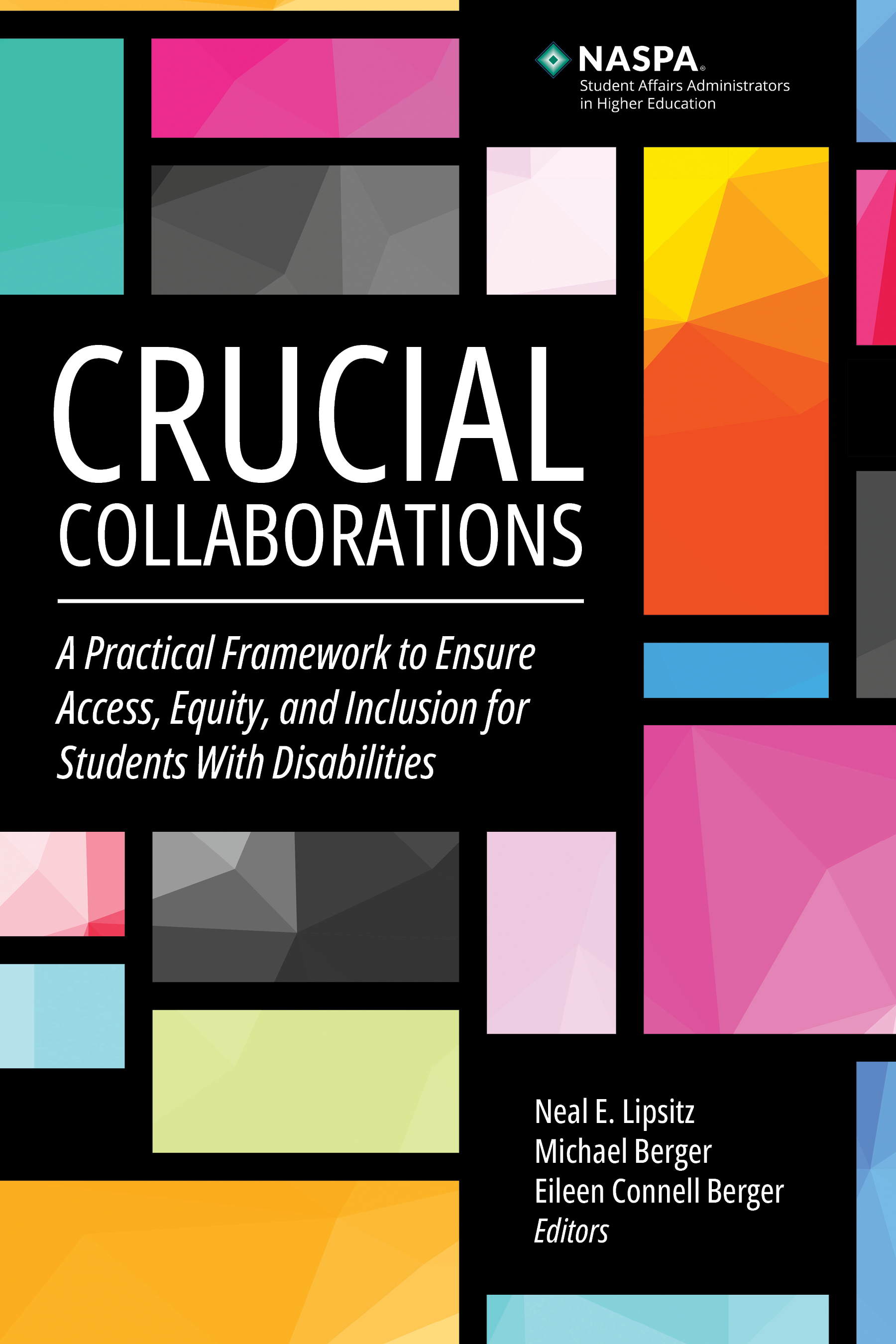Praise for Crucial Collaborations: A Practical Framework to Ensure Access, Equity, and Inclusion for Students With Disabilities
“Through scholarly research and personal narrative, the contributors to Crucial Collaborations open an essential conversation about cross-functional approaches to processes and cultures that prioritize an accessibility mindset. Theoretically-based, the groundbreaking framework is immediately applicable and ultimately beneficial to all stakeholders involved. Crucial Collaborations is an important contribution to all those who support students and their educational goals.” —Michele C. Murray, Senior Vice President for Student Development and Mission, College of the Holy Cross
“Crucial Collaborations provides an invaluable tool for realizing equality for students with disabilities in higher education. It seamlessly integrates the knowledge garnered by years of practical application by its editors with the lived experiences of successful college graduates with disabilities.” —Michael Ashley Stein, Executive Director, Harvard Law School Project on Disability
“This book is ideal for experienced practitioners who have been yearning for a premiere resource to guide the delivery of optimal learning experiences for students in a post-ableist framework. The distinctive operational focus of this compilation is complemented by helpful first-person narratives that will resonate with professionals committed to inclusion and success for all students with varying and often complex exceptionalities.” —Peter F. Lake, Professor of Law, Stetson University College of Law
“Too often when equity, social justice, and inclusion are front and center issues on college and university campuses, those with disabilities do not consistently come to mind and can be some of the most marginalized members. This book and the Collaborative Framework are valuable resources in addressing this shortcoming. They are much needed tools for improving services and support to students who offer much to our campuses but continue to encounter too many institutional and individual barriers to their success.” —Mike Segawa, Vice President for Student Affairs, University of Puget Sound and Pitzer College (retired)
“Crucial Collaborations takes a layered, systematic approach to solving accommodations conundrums. The framework is a practical way of working to share information across educators and service providers with the goal of ensuring equitable, inclusive practices without sacrificing academic rigor.” —Kristie Proctor, Director of Student Accessibility Services, Quinsigamond Community College
“People with disabilities constitute a critical and integral part of higher education. To guarantee students’ success in pursuing educational goals, we must rely on best practices and tools that will help them succeed. The Collaborative Framework is based on years of experience by the authors. It is a practical visual road map to success! The Collaborative Framework, best practices, and student narratives make this book a must-read for stakeholders invested in the long-term success of students with disabilities.” —Ruth M. Molina, Director of the New England Higher Education Recruitment Consortium, Harvard University
“At once practical and aspirational, Crucial Collaborations invites readers to rethink current methods of facilitating inclusion and belonging in higher education, and to demonstrate that accessibility for all benefits all. This book is a thoughtful celebration of difference; it should be required reading for optimizing success of students with disabilities.” —H’Sien Hayward, Licensed Clinical Psychologist
“Crucial Collaborations is a necessary and critical resource at a time when the dialogue around disability and neurodiversity is greatly improving on campus, but institutions are challenged in navigating ever more complex issues, including digital accessibility, increasing technology in the classroom, changed expectations following a pandemic, and a range of other issues. The authors bring their own expertise to the fore in setting the structure, but also provide ample room for their stellar contributors to provide their own view of where disability rights are now and where they have the potential to move in the future.” —Phil Catanzano, Faculty Lecturer, Harvard Graduate School of Education
